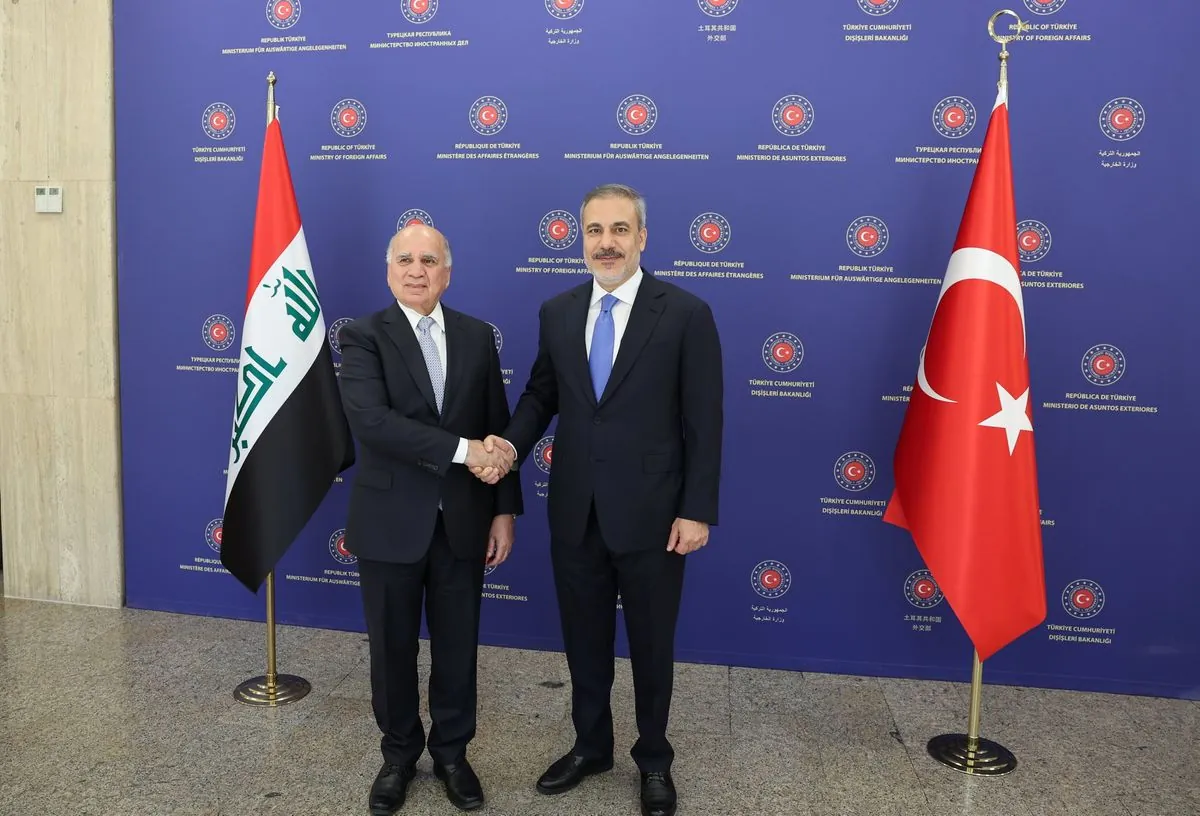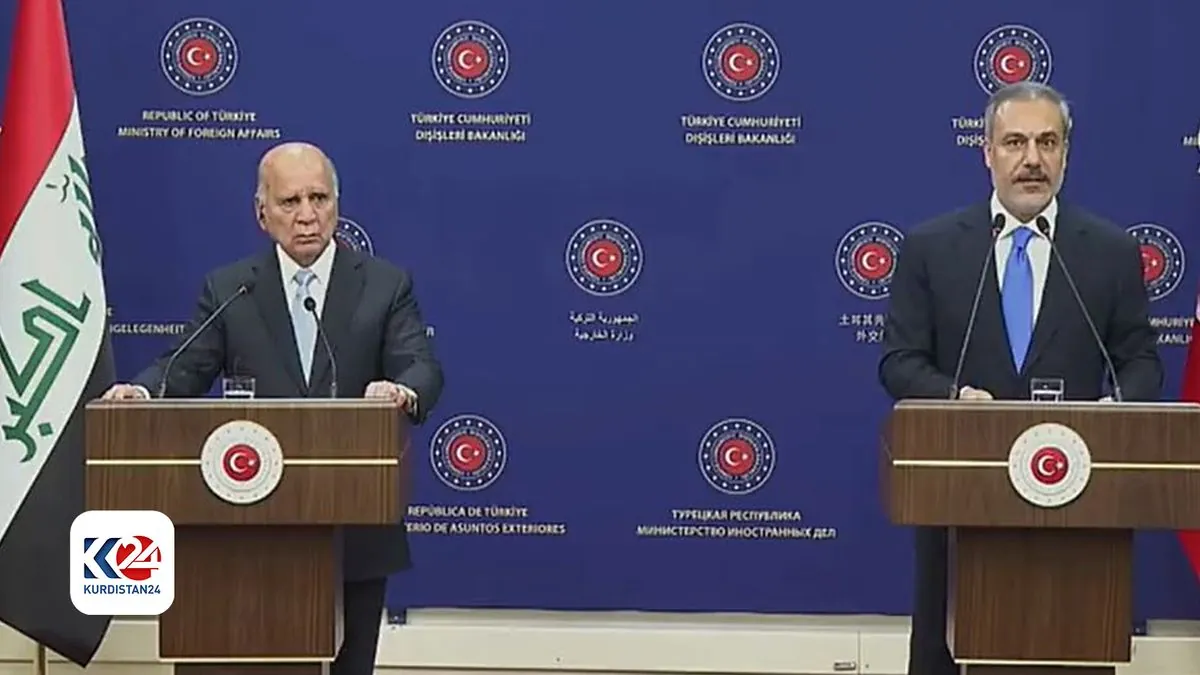Turkey and Iraq Forge Historic Security Pact Amid PKK Concerns
Turkey and Iraq have signed a groundbreaking military and security cooperation agreement, marking a significant shift in their relations. The pact aims to enhance counter-terrorism efforts and address long-standing issues related to PKK militants.

In a significant diplomatic development, Turkey and Iraq have entered into a historic military and security cooperation agreement. The memorandum of understanding, signed on August 15, 2024, focuses on enhancing collaboration in military affairs, security measures, and counter-terrorism efforts.
Hakan Fidan, Turkey's Foreign Minister, announced the agreement following two days of high-level security talks in Ankara. This pact represents a major shift in the relationship between the neighboring countries, which have experienced tensions in recent years due to Turkey's cross-border operations against Kurdistan Workers' Party (PKK) militants in northern Iraq.
The PKK, founded in 1978 as a Marxist-Leninist organization, has been engaged in an insurgency against the Turkish state since 1984. This conflict has resulted in over 40,000 casualties and has significantly impacted the region's geopolitical landscape.

The new agreement includes provisions for establishing joint coordination and training centers. A Joint Security Coordination Centre will be set up in Baghdad, while a Joint Training and Cooperation Centre will be located in Bashiqa, near Mosul in northern Iraq. These initiatives aim to elevate the level of cooperation between the two nations in addressing shared security concerns.
Fuad Hussein, Iraq's Foreign Minister, emphasized the unprecedented nature of this agreement, stating it was "the first in the history of Iraq and Turkey" in the field of military and security cooperation. This development follows a series of diplomatic efforts to improve bilateral relations, including Turkish President Tayyip Erdogan's visit to Baghdad in April 2024.
"Through the joint coordination and training centres planned in this agreement, we believe we can take our cooperation to the next level. We want to advance the understanding we are developing with Iraq on counter-terrorism through concrete steps on the ground."
The agreement comes in the context of Turkey's long-standing conflict with the PKK, which has affected its relations with neighboring countries. Turkey shares a 331-kilometer border with Iraq, and the rugged terrain of northern Iraq, particularly the Qandil Mountains, has served as a stronghold for PKK militants.
In a notable shift, Iraq labeled the PKK a "banned organisation" in March 2024, a move welcomed by Turkey. However, Turkish officials, including Defense Minister Yasar Guler, have expressed hope that Iraq will take further action by designating the PKK as a terrorist organization.
The PKK is already considered a terrorist group by Turkey, the United States, and the European Union. Initially seeking an independent Kurdish state, the organization has since modified its goals to advocate for democratic autonomy.
This security pact represents a potential turning point in Turkish-Iraqi relations, which have been strained by Turkey's military presence in parts of northern Iraq since the 1990s. The agreement aims to address these concerns while fostering a more collaborative approach to regional security challenges.
As both nations move forward with this new framework for cooperation, the international community will be watching closely to see how this agreement impacts regional stability and the ongoing efforts to combat terrorism in the area.


































